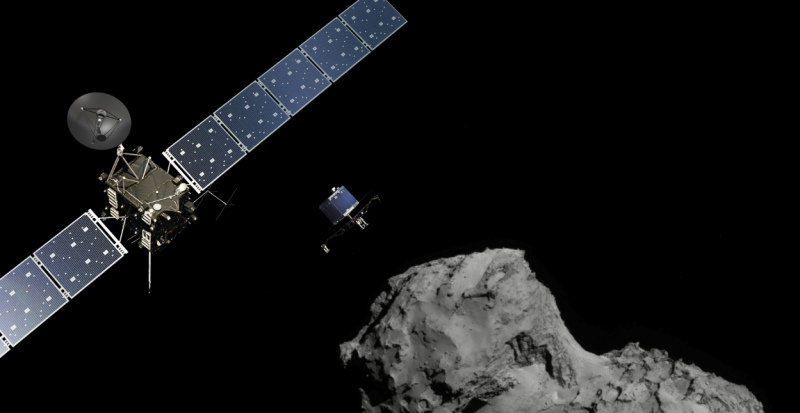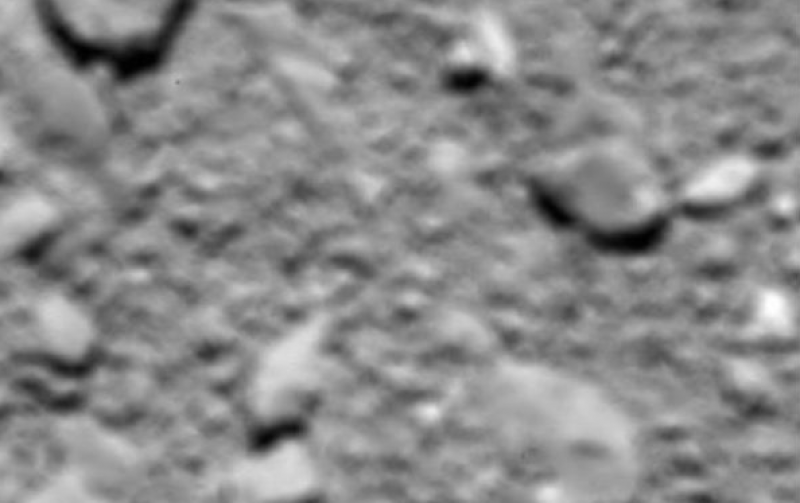 |
| European Space Agency artist rendering of Rosetta on its 12 year mission. |
Europe's pioneering Rosetta spacecraft dramatically concluded its 12-year odyssey recently, crash-landing into the comet it orbited and probed for two years in a quest to demystify the solar system's origins.
There were tears, hugs and cheers at mission control in Darmstadt, Germany when spacecraft operations manager Sylvain Lodiot announced: "This is the end of the Rosetta mission."
"Rock-n-roll Rosetta," added a visibly moved Matt Taylor, project scientist, as he left the podium, holding -- and shaking -- his head.
Rosetta made a "controlled impact" with Comet 67P/Churyumov-Gerasimenko at 1041 GMT. Sept. 30 -- the closing chapter in a trailblazing project approved in 1993 to look some 4.6 billion years back in time.
Comets are thought to contain primordial material from our planetary system's birth, preserved in a dark space deep freeze.
Rosetta had been programmed to touch down at a human walking pace of about 90 cm (35 inches) per second, after a 14-hour freefall from an altitude of 19 kilometres (12 miles).
It joined long-spent robot probe Philae on the galactic wanderer's rocky, cold surface for an eternal journey around the Sun.
Confirmation of the mission's end came at 1119 GMT, when the spacecraft's signal -- with a 40-minute delay -- disappeared from ground controllers' computer screens.
"We have loss of signal of Rosetta," announced a grim-faced Lodiot.
 |
| Rosetta's last photograph just before crash landing. ESA photo. |
"We will be listening for a signal for another 24 hours, but don't expect any..."
Mission scientists had expected Rosetta would bounce and tumble about before settling -- but the craft's final moments will forever remain a mystery as it was instructed to switch off on first impact.
The comet chaser was never designed to land.
In its final hours, Rosetta sent home crucial last-gasp data gathered from nearer the comet than ever before, tasting the comet's gas, dust and plasma, and taking close-up pictures of the spot that is now its icy tomb.
While scientists are looking forward to delving into Rosetta's last-minute data, "there is something about the attachment, there's something about that spacecraft being there. I will feel a sense of loss, surely."
Read more: AFP.com